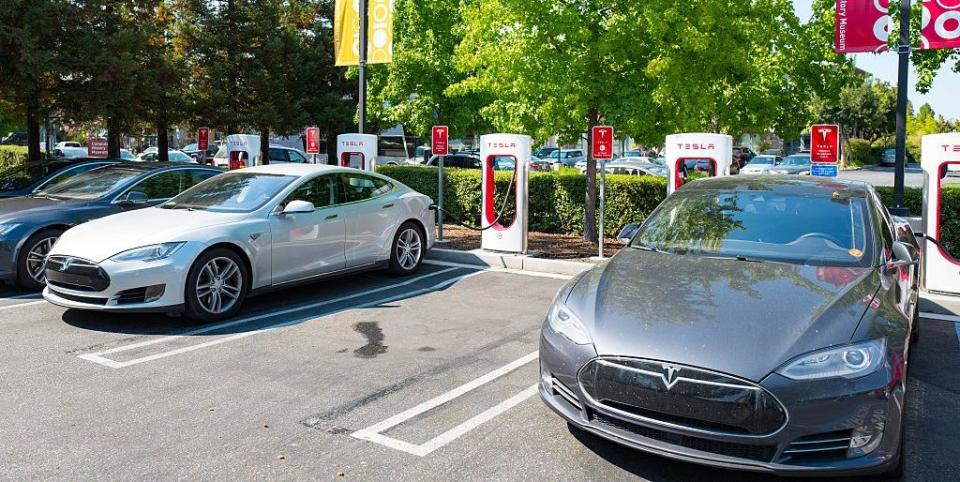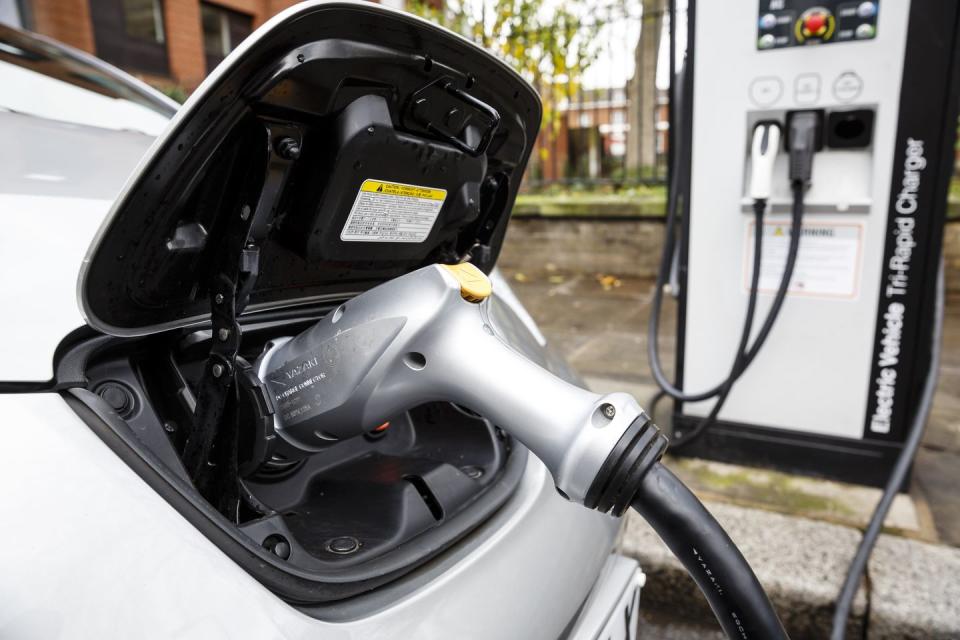EV Adoption Targets Unachievable, New Survey Says

Recent study commissioned by ABB Robotics polling almost 600 experts finds that 59% believe the shift to EV production is not achievable in the timeline put forth by legislation.
The causes cited by experts include grid capacity, shortages of raw materials, high levels of capital investment, and a lack of infrastructure.
However, 80% of experts surveyed say that a shift to sustainable manufacturing methods is achievable.
Quite a few automakers have already announced their intent to offer only electric models in the coming years, amid a nearly industry-wide acceptance of electrification. Of course, there are still a number of skeptics among the major players that see gas and diesel-engine vehicles playing a role past 2040, but the major automakers are largely on board with very ambitious time scales, including Volvo, which expects to go EV-only by 2030.
Likewise, governments in western Europe, along with a growing number of US states, are seeking to phase out the sales of internal-combustion cars and light trucks no later than 2035.
But are these near-term goals realistic?
A recent study commissioned by ABB Robotics, a manufacturer of industrial robots, surveyed almost 600 global industry experts from engineering, manufacturing, and management fields, and revealed that more than half of those surveyed, 59% to be precise, believe the shift to EV production is not achievable in the timeline put forth by legislation.
Those experts believing these goals are unrealistic have cited shortages of raw materials, high levels of capital investment, grid capacity, and a lack of infrastructure as the difficulties.
On the other hand, just 28% of those surveyed expressed the opinion that legislative deadlines were achievable. ABB notes that just 11% said all regional targets for electric-vehicle adoption by 2030 to 2040 were actually realistic, while 18% said the current targets would never be met at all.
"The survey confirms the automotive industry challenges—that manufacturing is under strain and disrupted supply chains are under considerable stress," said Daniel Harrison, automotive analyst at Automotive Manufacturing Solutions.
ABB Robotics notes that 26% of respondents cited the lack of charging infrastructure as one of the barriers to EV adoption, while 17% cited the high prices of EVs. Furthermore, 19% of respondents cited adaptation to a new battery supply chain as another barrier to EV adoption, while 16% cited the high levels of investment required by automakers and suppliers.

"This is likely to be the 'new never normal,' which poses considerable challenges to how quickly the industry can transition to electrification and also wider manufacturing sustainability targets, especially during a period of great economic uncertainty," Harrison added. "Furthermore, within that context, challenges remain in the availability and cost of labor and how quickly large workforces can be reskilled."
Not mentioned in the survey is an important observation: EV adoption is not growing at a pace that would suggest 100% of all new vehicles sales will be EVs or hydrogen fuel-cell cars by the year 2035, taking one of the more common target years at face value. Such a pace would require nearly double-digit annual growth to approach this target, which is certainly not seen in US states that have adopted California's 2035 goal, or the EU's own 2035 target.
If there is a dose of optimism in the survey, it is perhaps the fact that 80% of experts say that sustainable manufacturing is achievable.
On the issue of sustainability, we've seen a number of automakers retooling factories to achieve climate-neutral status. A factory becomes climate-neutral when it registers no net increase in the emissions of greenhouse gases as a result of the electricity and heating used by the plant. A number of automakers have gone a step further by requiring their suppliers to achieve climate neutrality in their operations by a certain year as well.
Will a number of US states be able to phase out the sales of gas and diesel-engine cars and light trucks by 2035, on a timeline set by California, or are EV adoption rates moving too slowly for that to happen? Let us know in the comments below.

 Yahoo Autos
Yahoo Autos 